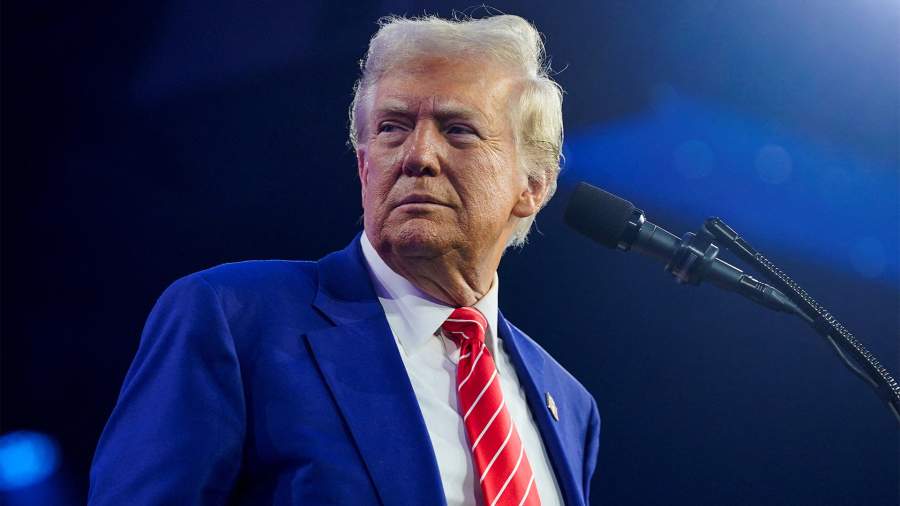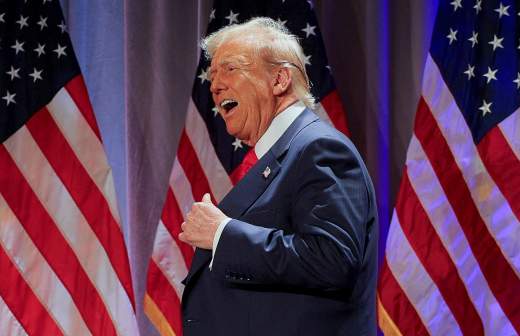Dear Bogota: Russian Federation will strengthen its position in Latin America with Trump's arrival
- Статьи
- World
- Dear Bogota: Russian Federation will strengthen its position in Latin America with Trump's arrival

With Donald Trump in the White House, many Latin American countries' relations with the United States could escalate. Washington has already entered into a verbal confrontation with Panama. The sovereignty of the Latin American state over the Panama Canal was supported by the authorities of Colombia, Mexico, Venezuela, Nicaragua and other countries in the region. Experts are confident that the U.S. dialog with these states from a position of strength will cause rejection, which will open up additional opportunities for Russia. Colombia may become Moscow's new potential partner - the strengthening of relations with Bogota was confirmed to Izvestia by Alexander Shchetinin, Director of the Latin American Department of the Russian Foreign Ministry. With whom else Russia can strengthen cooperation in the region - in the material of "Izvestia".
Prospects for Donald Trump's relations with Latin American leaders
There is less than a month left before Donald Trump officially takes office as President of the United States, and already now the outlines of the Republican's foreign policy vectors are beginning to be seen. In particular, it is becoming apparent that the interaction of the States with Latin American governments may become more difficult for the next four years.
Difficulties in the relationship Trump has already had with the authorities of Panama, after the Republican threatened to return the Panama Canal under the control of the United States, if the Latin American state does not reduce tariffs for the transit of goods.
"When U.S. President Jimmy Carter foolishly gave it away for $1, only Panama could run the canal, not China or anyone else. Likewise, Panama had no right to set abusive prices and vessel passage volumes for the U.S., the Navy, and corporations doing business on U.S. soil," Donald Trump wrote on his Truth Social media page.
Such statements were expectedly condemned by both Panamanian President Jose Raul Mulino and other Latin American leaders.
"Every meter of the Panama Canal belongs to Panama, it will continue to be so," Mulino said in response to Trump's claims. To which the latter wrote on his social media, "We'll see about that."
Colombian leader Gustavo Petro was among the first to speak out in support of Panama, followed by Mexican President Claudia Sheinbaum, who stood up for Mulino. Trump's statements were also called a threat to the region in a joint statement by the countries of the Bolivarian Alliance for the Peoples of the Americas (ALBA), which comprises 10 nations including Cuba, Bolivia, Venezuela and Nicaragua.
By the way, the clashes between Panama and the US were seen even earlier, in early December. The American TV channel NBC News, citing sources, reported that the team of the president-elect is working on a list of countries to which undesirable migrants can be deported if they refuse to be accepted in their country of origin. The list allegedly included Panama, among others. In response, the authorities of the Latin American state said they were not obliged to accept deportees from the States.
Against the backdrop of the migration crisis, Trump has already managed to inflame relations with the Mexican leadership. In late November, he said he would impose duties of 25% on all goods from Mexico, as well as Canada, due to the influx of illegal immigrants and drug smuggling. However, Sheinbaum was able to convey her migrant strategy to Trump in a phone call, thus lowering the tension a bit. Mexico City even said they were expanding the legal staff at their consulates to provide all the help they could to citizens who could face deportation.
However, then Trump decided to raise the stakes again and already on December 10 offered Canada and Mexico to be American states, saying: the countries receive large subsidies from Washington and, if this continues, it would be better for them to become part of the United States immediately.
In general, Trump has few obvious partners in Latin America, their list is limited to Argentine leader Javier Milay and Salvadoran President Nayib Bukele. The future head of the White House kept in touch with them even before his victory in the November elections, and they were among the first he called to his inauguration in January.
Trump's conflict with Latin America opens up prospects for Russia
The most likely scenario of Donald Trump's policy toward Latin American countries after his inauguration is pressure and a desire to force them to comply with U.S. geopolitical interests.
- Among Trump's priorities is a return to the Monroe Doctrine (the Declaration of Principles of U.S. Foreign Policy ("America for Americans"), which was proclaimed on December 2, 1823 in the annual address to Congress by the 5th U.S. President James Monroe. - "Izvestia"), where the main idea is to create a "backyard" in the face of Latin American countries. We should expect a more aggressive course towards many countries, and Mexico may become an existential rival due to the migration crisis," Konstantin Blokhin, a researcher at the Center for Security Studies of the Russian Academy of Sciences, told Izvestia.
It is obvious that U.S. attempts to build relations with the governments of the region from a position of strength are already causing rejection. In this regard, it is possible that the states will be able to better understand the Russian view of geopolitics, said Nikolai Kalashnikov, advisor to the director of the Latin America Institute of the Russian Academy of Sciences.
- What brings us and Latin America closer together is the struggle against the hegemony of the West and the United States. Rejection of Trump's policy will contribute to understanding Russia's position, as well as improving relations with those countries with which Russia has not yet made significant progress," Nikolai Kalashnikov says.
Nevertheless, the expert notes that the attitude of Latin American countries to the Ukrainian crisis may become a deterrent. It should be taken into account that although the majority of states have taken a restrained position, there are not so many who openly support the conduct of SWO.
At the same time, Colombia could become one of Russia's new promising partners in Latin America. In November, for the first time in a long time, a meeting at the level of foreign ministers took place in Moscow, and now the Russian Foreign Ministry does not rule out strengthening cooperation with Bogota, previously traditionally close to the United States. It is worth noting that Colombia is a global partner of NATO. The Russian Foreign Ministry noted that Moscow will seek to use the positive groundwork of the visit to achieve practical results in the near future.
- We note with satisfaction the mutual interest in intensifying political dialog, expanding inter-parliamentary cooperation, strengthening trade and economic cooperation. We see significant reserves in the cultural, scientific and educational spheres. We will continue close cooperation in the United Nations, first of all in the interests of supporting peacebuilding processes in Colombia. In the coming year we have a good reason for new meetings: in July we will celebrate 90 years since the establishment of diplomatic relations between Russia and Colombia," Alexander Shchetinin, Director of the Latin American Department of the Russian Foreign Ministry, told Izvestia.
In this context, the countries with left-wing politics are seen as promising for Russia. They are traditionally more inclined to cooperate with Russia - Colombia, as well as, for example, Mexico, are among them.
Against the backdrop of Trump's aggressive foreign policy, Russia is likely to intensify its cooperation with countries with which it already has strong cooperation, especially through BRICS. For example, with Brazil. There are reasons to believe that Luiz Inácio Lula da Silva's relationship with Trump is unlikely to develop in a positive way. During the previous term, the US president-elect had close ties with Jair Bolsonaro, Lula da Silva's political opponent.
We should expect Russia to deepen its ties with Cuba and Bolivia, which will join BRICS as partner states on January 1. Besides, Russia already has joint projects with the latter in the field of lithium mining. Uruguay became a new country in the leftist camp after the recent elections. However, Jamando Orsi will take office as president in March 2025, so it is too early to draw conclusions about his foreign policy priorities.
Переведено сервисом «Яндекс Переводчик»


